How does Jason Momoa’s presence impact a comic convention? It’s a legitimate question and one the Project Director of the Comic Cons Research Project, Professor Benjamin Woo hopes to answer.
Conventions of all kinds are growing in popularity as governmental organizations, corporations and media industries take advantage of the unique experience that is a convention. Despite their popularity, however, we still know little about what makes a convention a success or failure. Benjamin Woo is an Assistant Professor of Communication & Media Studies at Carleton University and he wants to help change that. Gaining a greater understanding of what it takes to organize, plan, and operate a convention is part of what he and his team of researchers hope to explore. I spoke with Professor Woo last week to find out what else he and his team hope to uncover and why this research matters.
Mapping Convention Culture
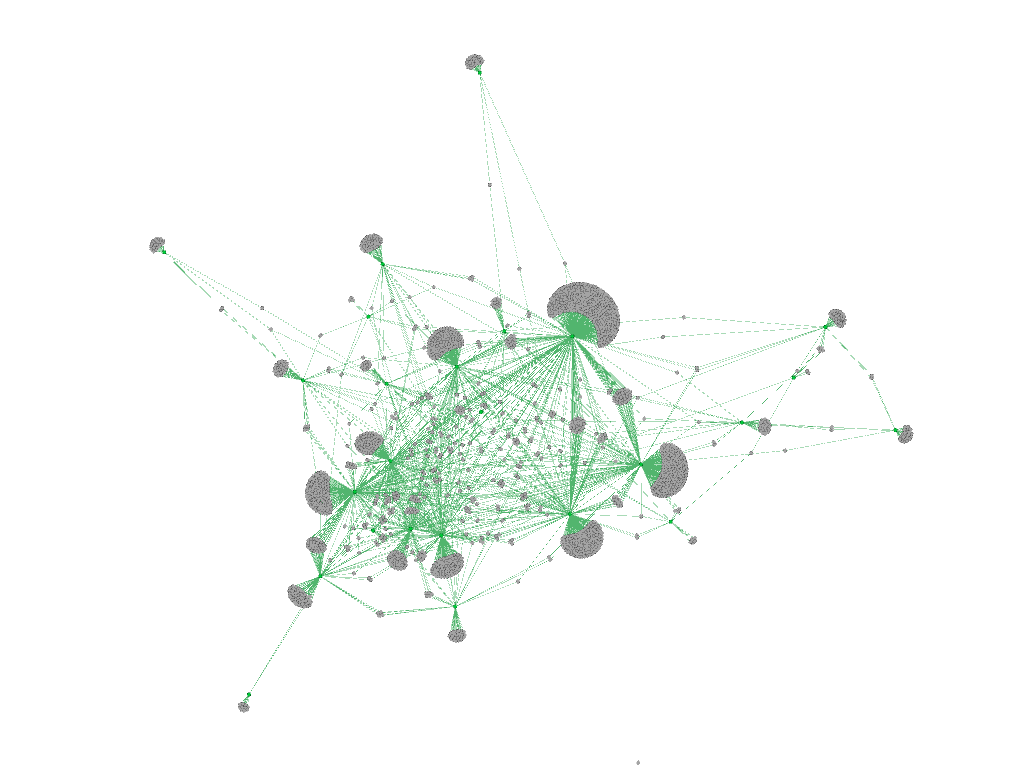
It’s an ambitious project. Three years with three central questions fueling the bulk of an impressive team’s research aims. The goal is to understand how conventions have grown in recent years, gain more awareness for how they interface with industries and the cities where they are located, and identify how they may be better supported. The first step to answering any of these questions is to create a cultural map to find out where comic cons and events happen. Before I got into the gritty bits of the research project, I asked Professor Woo how he became interested in this field of research.
Woo: “A lot of it goes back to being a long-time comics fan and comics reader, and at one point a sort of very unsuccessful cartoonist tabling at conventions and hanging out with cartoonists. I’ve been working in the field of comics studies or comics scholarship for a number of years now but I got a little dissatisfied with the general way that comics tend to be talked about by academics. My training is in communication and media studies rather than English Literature, which is where most of my colleagues in the field are trained. As someone who comes from that background, an approach to comics that focuses almost exclusively on what’s on the page doesn’t tell us a lot. There’s a lot of questions that we can’t answer just by reading comics very carefully.”
The Comic Cons Research Project is a partnership between Carleton University, Ryerson University, the University of Calgary, the Ottawa Geek Market, and the Toronto Comic Arts Festival. Woo’s research team will embed student researchers with both the Ottawa Geek Market and TCAF over the next year. These researches will observe and assist in every component of the planning process to gain a clearer picture for how organizations plan for and address the ever-changing needs and pressures of a growing community. One of the goals, Woo says, is to build out best practices for comic convention organizers.
Woo: “It’s become very clear that, on the one hand, there are lots of informal networks for sharing advice and experience among convention organizers, but on the other hand, there’s a lot of variables that we still don’t know about, particularly as the variety of different event formats starts to grow. So we have these big differences in scale, everything from San Diego down to a small-scale, local dealer-oriented show. And then we’ve got this wide continuum of genres of event, so your Creation Entertainment official genre-specific convention, your multi-fandom general convention, your comic arts festivals, more dealer oriented versus more programming oriented conventions. So there’s this huge variety of different kinds of events and it’s a sector that we still don’t know an awful lot about.”
Woo is hoping to bolster their cultural mapping research using a combination of surveys and existing information. Some of the questions contained in the survey ask event organizers to rank factors like the importance of fandoms or genres to their events and to list the kinds of activities their conventions have available for attendees. This will offer a kind of topography for what the convention sector looks like from numerous angles. By gathering a rich data set featuring both large and small events, the researchers hope to gain a clearer picture for the health of the convention sector.
A Convention Bubble?
It would be impossible to conduct an interview about conventions without asking about recent high-profile implosions including UniversalFanCon and Epic Icon. While these kinds of implosions are more rare, cancellations and general poor planning appear to be on the rise. I asked Professor Woo if this was merely the observation of an outsider or if we can infer anything about the health and wellness of the convention sector.
Woo: “I think it’s early to say whether we’ll be able to sort of pin down something that shows us exactly which way things are going, but it’s pretty clear that, as you allude to, there’s been this massive growth and I think there’s a really good question about whether this is a bit of a bubble. I think that well run local and regional conventions are probably going to be pretty safe, ones that have a good relationship with a range of vendors that are within their area that have built and are continuing to build a loyal attendee base. But I think the real question is how many events can vie to be destination events? And I think that the level of ambition that it takes to aim for that scale is also where you’re going to see the real vulnerability in the sector. An event like Universal FanCon that clearly relied on the idea that people would travel quite a distance and lots of people would undertake that trip and buy tickets, and it’s hard to get that many people to move around a continent, particularly when there’s so many other competing events for their time and their money.”
Woo added, “How many large-scale destination conventions can be supported in the long-term is a much more tenuous question. And so, there may well be a bit of a bursting to the bubble that we’ve seen over the last couple of years, but I don’t think that con culture in general is going to be going anywhere any time soon.”
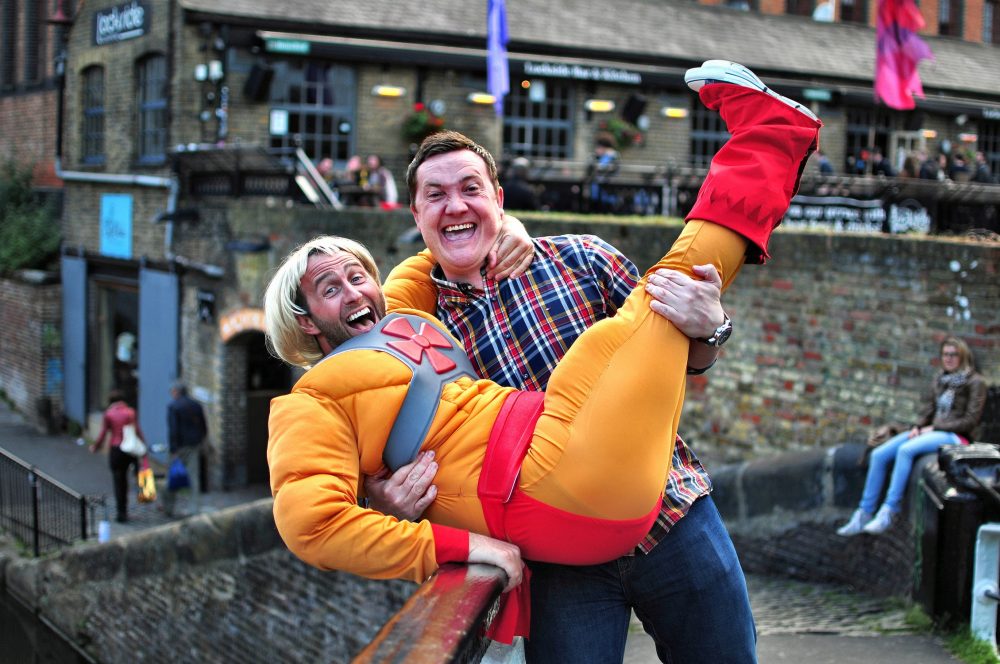
Living in Silicon Valley you can hardly throw a stone without hitting a convention happening somewhere. There’s a reason for that and it goes deeper than merely lining organizer pockets. Convention organizers will be the first to tell you that you don’t get into event planning and organization for the profit! Attending conventions is an experience unto itself. I asked Professor Woo if he could speak to the rise of convention culture and whether or not their team can identify why conventions help folks engage in the practice of fandom.
Woo: “I think a lot of it has to do with the prominence of the genres that we’ve conventionally considered to be kinda geek culture genres in larger, higher profile kinds of venues in the entertainment industry. Once all of the marketing power of Hollywood gets thrown behind these genres as major, meaningful events, I think what we’ve just seen is that the marketing power of the entertainment industries has kinda activated that passion for a lot of people. Conventions have become the obvious place to connect with other people, to express that enthusiasm and that passion, to access the physical, material goods, the merchandise, and the experiences that they need to engage in those practices of fandom. Now, the fact is that not everyone who attends a convention is necessarily a die hard fan of a specific text, or a specific character, or a specific franchise in the way that we might ordinarily expect. This should suggest to us that there’s a lot of different ways to be a fan and that conventions have turned into one of the key spaces for allowing different kinds of fans to access what’s important to them about that experience.”
Ayres: “I work from home, if I talk to people about comics or a video game, it’s usually via the internet and surely that’s a kind of community, but being in the physical presence of others is something very different. I wonder if more people are reaching out to conventions as a way to fill a social need? As comic book stores close and as community spaces become less accessible, are conventions perhaps providing us a space that we don’t have access to in real life?”
Woo: “I think that one of the things that we’ve seen over the last 50 or 60 years, certainly, in North America, in Western societies more generally is a kind of privatization of a lot of our lives. We spend more time in smaller and smaller groups. And political scientists and sociologists talk about this as a kind of crisis of social capital, that organizations like Elks lodges, and country clubs, and bowling teams, and things like that have been on the decline over the second half of the 20th century. For many of those scholars, this is a real social crisis that they’re concerned about, the individualization, the alienation of people from their communities.
I am not that pessimistic because I think we’ve seen the energy around social connection move to different kinds of spaces and different kinds of practices. So in that version of the story, media are often the culprit and the villain, that we spend more time watching TV instead of participating in our communities, but I think that, certainly not for everyone, but for lots of people who are engaged in fan communities, in fandom, media is in fact the entry way into community. And comic book stores have sometimes been the locus of that kind of energy, games stores have been, fan clubs have been, and right now, I think comic cons and other con events are one of the most visible and major places where we see that kind of energy being articulated.
We’re really interested in the ways that conventions, other kinds of institutions as well, but conventions in particular are kind of shaping people’s paths through this media culture. Whether that’s creating the spaces where attendees can show up and start to be drawn into fan communities and fan cultures, but also shaping the careers of creators by creating opportunities for them to interact with their audiences, to network, to pursue various kinds of opportunities in terms of meeting with publishers and peers.”
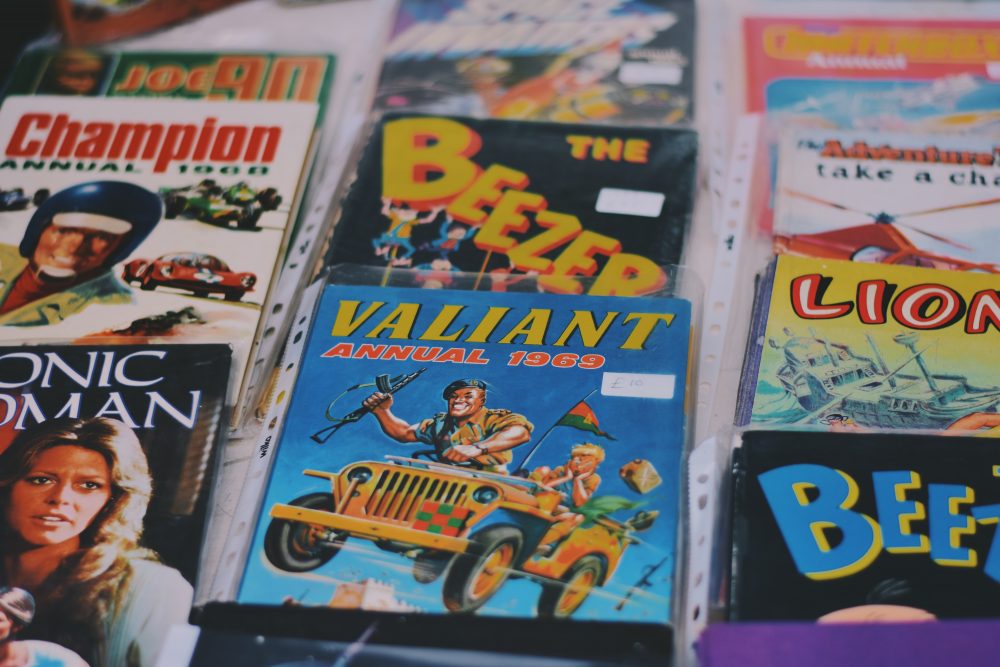
Setting the Standard
Running and operating conventions, to an outside observer, can at times appear hopelessly opaque. Large convention organizers are secretive, in part, because they wish to protect their intellectual property which include trade secrets and trademarks. As conventions grow, intellectual property battles have become more common. Certain convention organizers, like Wizard World, are publicly traded and are therefore required by law to release some amount of information to the public. There is not, however, a culture of openness around the panning and execution of conventions, be they comic or otherwise.
Woo: “A lot of convention organizations start out as small-scale things run by one or two or a small team of passionate individuals, and if they manage to be successful enough with that, and can turn it into their livelihood. It’s understandable that they’re a little cautious, since they are in competition with one another for good venues on non-competing dates, and for getting access to the kinds of guests that they need to bring in people. What we’re trying to recognize is that convention organizing has become a kind of practice of its own and conventions have become a kind of media industry of their own and we need to truly try to understand them better on their own terms.”
Ensuring accountability and access to information in a timely fashion is something that would likely benefit not only convention organizers but attendees as well. Of course it’s easy enough to say, it’s much more difficult in practice. It is in part because so much of the industry operates by its own standards, which vary widely from convention to convention. There are many ways, for instance, to count an attendee. Do you count a single badge scan as an attendee, does a volunteer count each person individually, or do you go by the number of badges purchased on a website? If there’s more than one way to count a person, imagine what the rest of convention organizing is like? Streamlining practices could go a long way towards helping to uncover the needs of both convention organizers and attendees. One way to do this, according to Professor Woo, would be to create a convention specific trade association to advocate for and on behalf of the sector.
Woo: “A trade association would deal with things like making sure volunteers are being compensated in a way consistent with minimum wage laws, making sure that tax reporting is being done appropriately around photo-op and autograph money, and so on. That could standardize things like how attendance is counted so that those numbers are comparable and we can really have a good handle on the size of events. Those sorts of things that a trade association or trade organization could help spur on I think would be really transformative, particularly if we are indeed moving in the direction of, perhaps, a contraction somewhere down the line.”
As more industries adopt the convention model, identifying best practices becomes even more important. Large conventions ask a lot. They ask a lot of the staff who help operate them and the cities and local infrastructure that support them. If you’ve ever been to San Diego Comic Con, you’ve likely heard a harsh word or two from locals about what they really think about the convention. Conventions can exacerbate income inequality, give rise to the number of displaced persons and can be a kind of trauma to a city’s infrastructure and capacity systems.
Woo: “There are lots of communities in North America now where an annual convention might well be among the largest and best attended cultural events in that community, but I’m sure that if you talked to funding agencies, and cultural planners, and so on that they’re gonna be a lot more aware of the jazz festival or the local writers’ festival than they are of the comic con. And so, I think for us, what we really wanna be able to do is help convention organizers speak the language of some of those other stakeholders that could be brought on board to, again, help stabilize the sector because I think we’re all proceeding from the assumption that this is a really important, vital space that’s sprung up over the last 20 or 30 years in terms of the uptick in activity and we wanna make sure that they remain available as spaces where people can go to pursue the things that are important and meaningful to them.
And there are great models of this. TCAF, for example, has as its headlining sponsor the public library system in Toronto, and they have been able to be quite successful in accessing funding from arts granting councils and working with, for example, the cultural departments of embassies and so on for bringing in international guests. So there are really good examples of this and I think the question is how we can make something like that relationship more of a standard across the board and bring these events to front of mind for people in these government offices. And just once conventions are better able to say, “Look, we’re able to report in a consistent, straightforward, transparent way this is how many people came, this is a good estimate of the economic benefit that we’ve brought to the city. “And I think we’ll be able to start having better conversations about how cities can support and sustain these events.”
Finding out the best ways to support cultural events is perhaps one of the most exciting and important components of the Comic Con Research Projects aims. It’s something that, as a partaker in comic con culture, I’ve often thought about but have never known how to address. It’s a matter of identifying tools and practices for making cities better for, not worse off, for having these kinds of events. That’s something we all have a stake in.
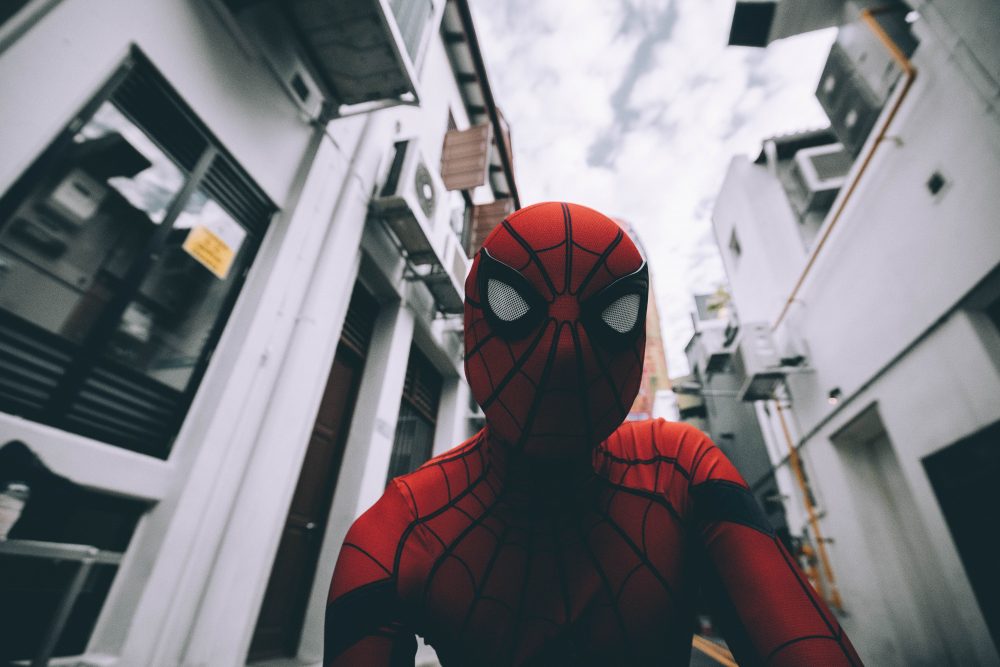
Looking Forward
Where do comic cons end and anime conventions begin? How do we plan for the future of conventions as their popularity increases? What can we learn from one another and how to we increase inter-convention communication? That’s only a snapshot of what Professor Woo and the team of researchers he is working alongside hope to answer in the coming years. This enterprising field of research is important for the health and future of comic conventions. We look forward to keeping up with the team as they continue on their quest to better understand what makes conventions tick.
The Comic Cons Research Project is funded in part through the Partnership Development Grant from the Social Sciences and Humanities Research Council of Canada. This grant that helps support academic and non-academic partnerships. If you would like additional information about the Comic Cons Research Project you may visit their website or keep up with them on Facebook.


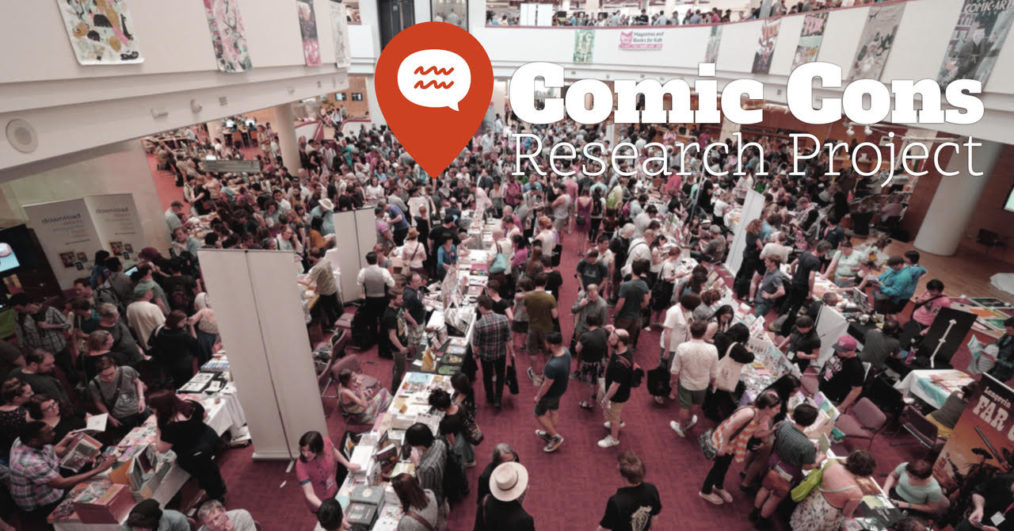
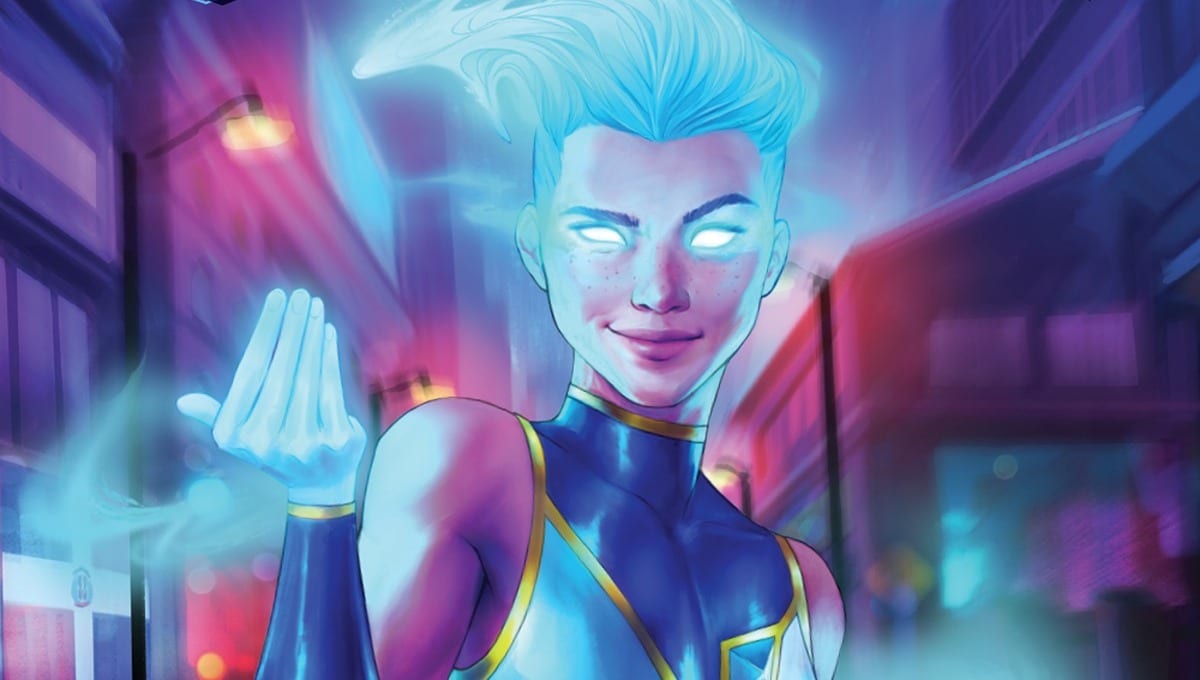
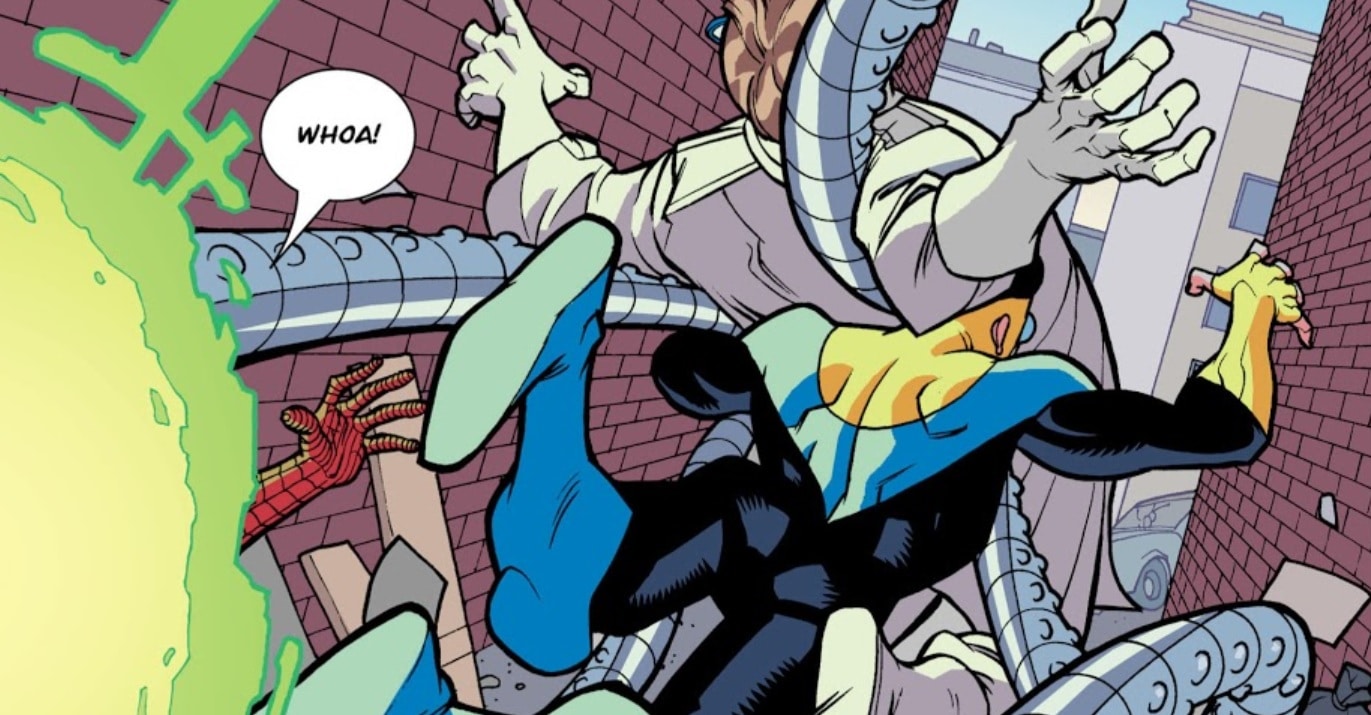
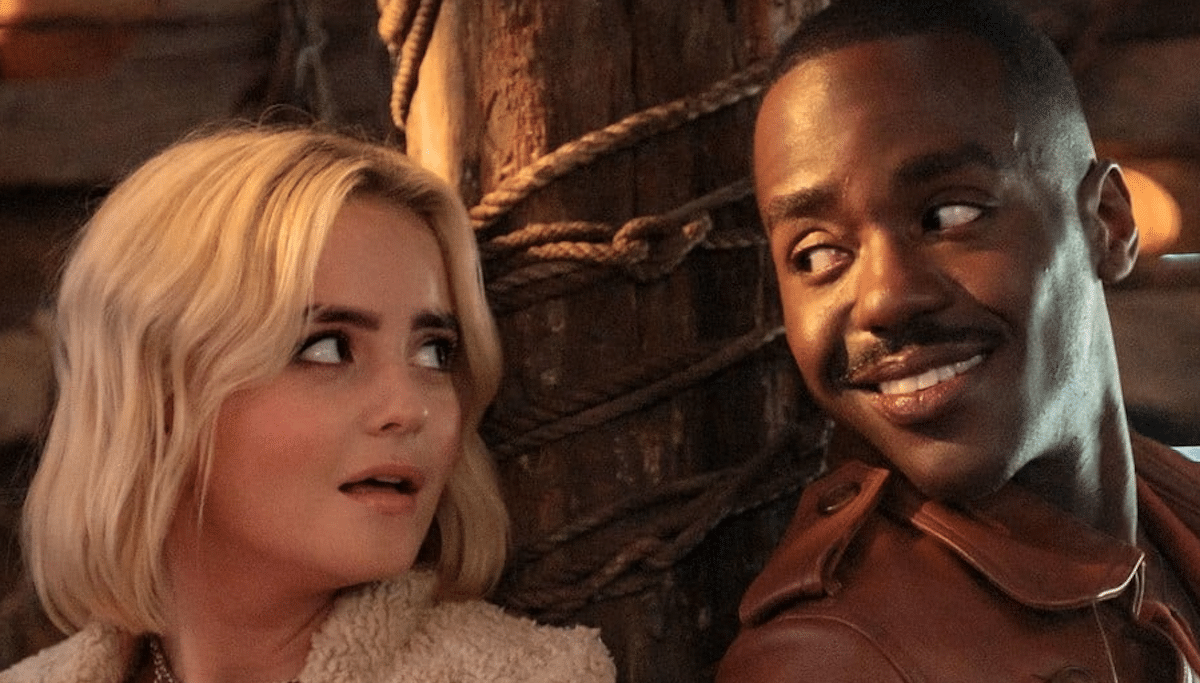
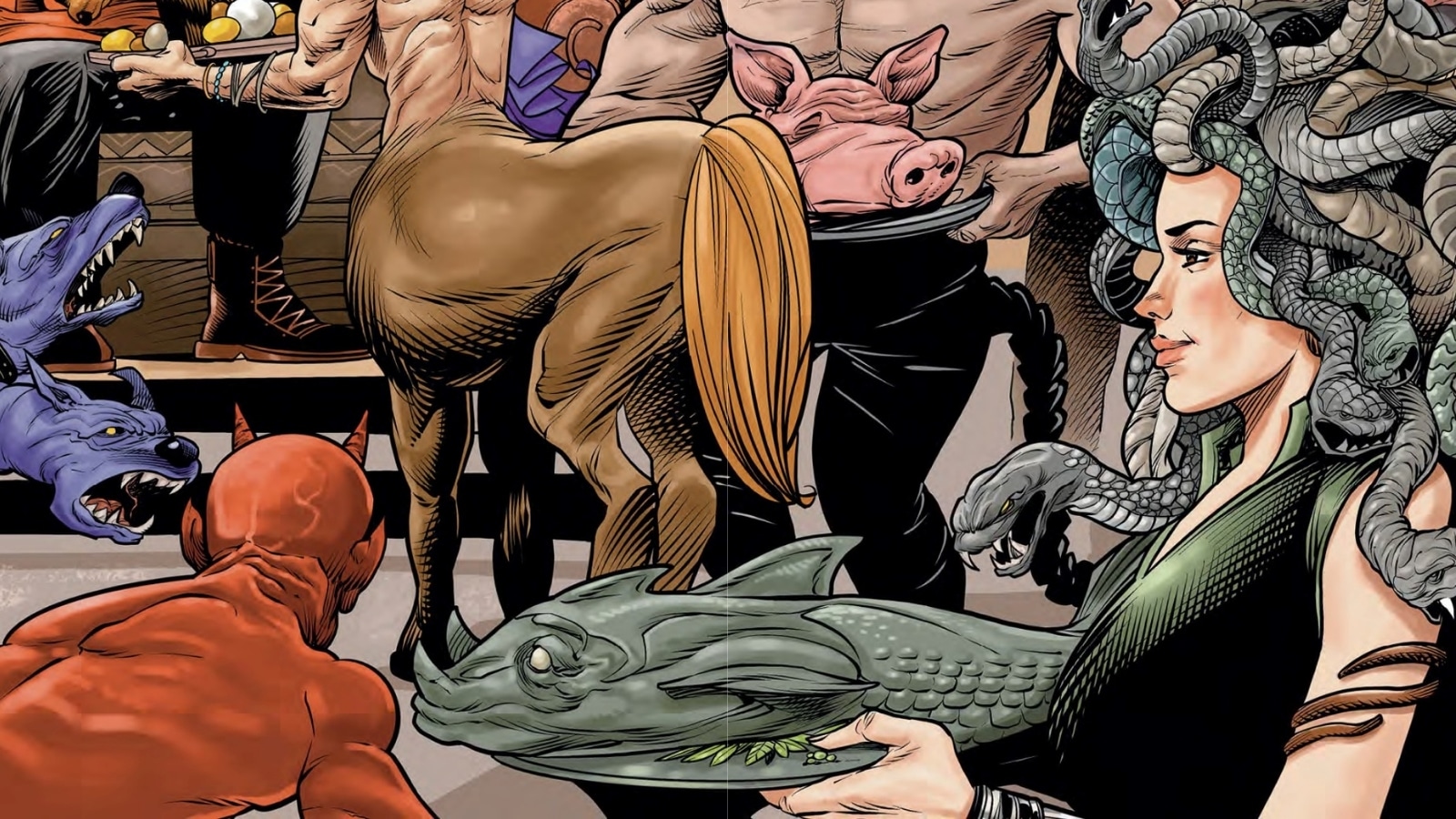


Fascinating stuff, Andrea!!
Comments are closed.